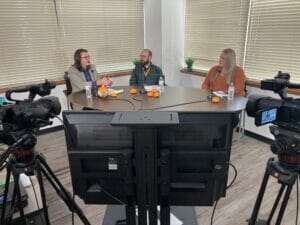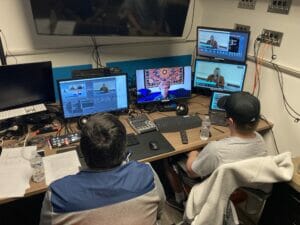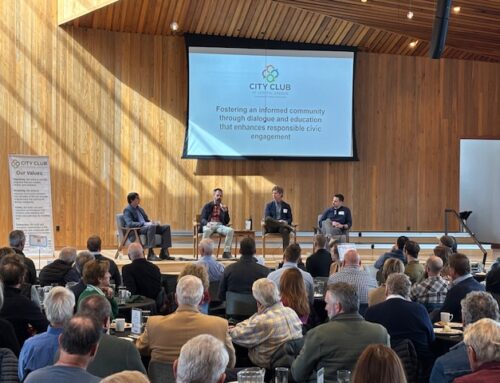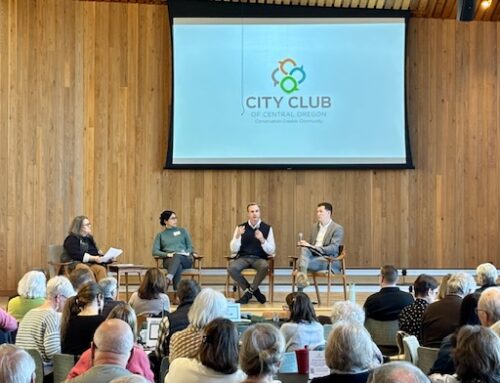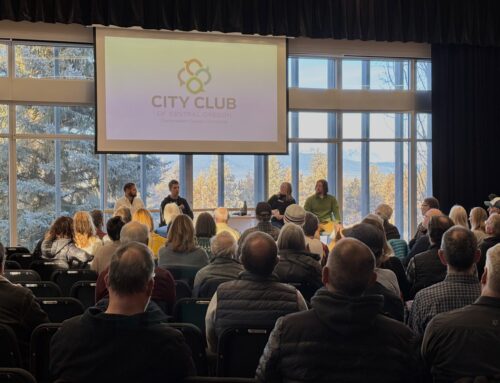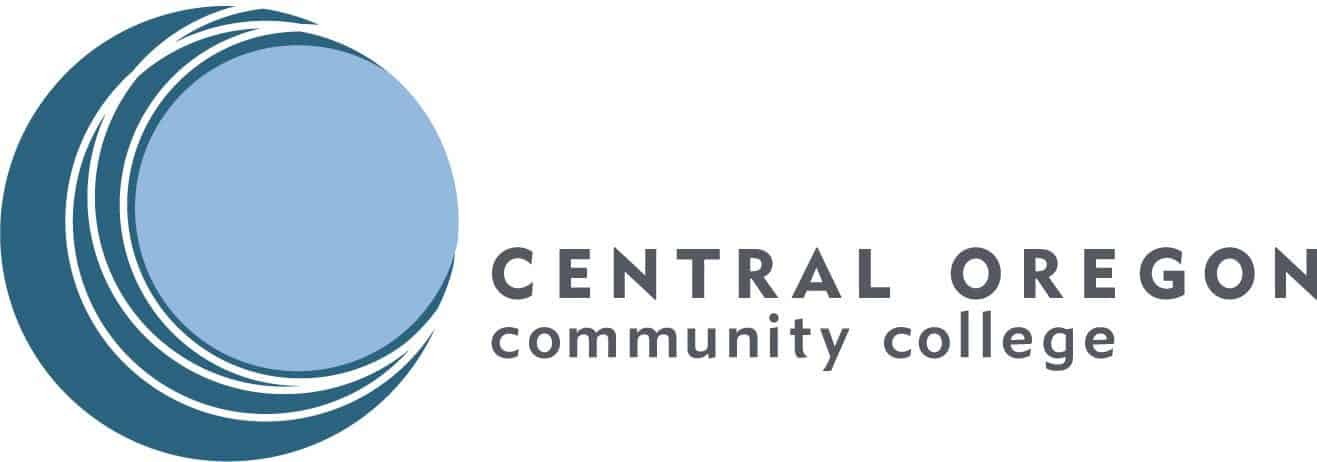Our October forum “How Do We Improve the Academic Success of Students Experiencing Houselessness?” was the first in City Club’s new partnership with The Bulletin. On a quarterly basis, we will present a forum following an investigative piece in the paper. Three pieces by Zack Demars appeared in the October 17th Bulletin issue:
- Adult connections, shelter are key to improving houseless graduation rates
- Students and advocates: Better support needed for homeless students
- Reporter’s notebook: Behind the story
The forum featured Southern Oregon University freshman Uriah Barzola, a former houseless youth, as well as, Steven Wetherald, Graduate Coach at Bend High School and the High Desert Regional Teacher of the Year and Eliza Wilson Program Manager at Grandma’s House and a former houseless youth.
Repeatedly the panelists identified connections to mentors, advocates and teachers as being key to the success of students facing houselessness. Students need someone they already trust to turn to when facing a crisis. They discussed how very difficult it is to focus on schoolwork when facing a lack of shelter, stability and even food. Houseless youth need to:
- Be seen and heard
- Be respected and feel free of judgement
- Feel supported
- Have shelter options for their circumstance
The conversation was a reminder that when it comes to youth, houselessness is something that is happening to the child and not a result of their actions. Someone else made decisions and the children must deal with the challenges. School may be the last connection they have to any level of support.
Several times during the forum, the panelists referred to the Mckinney Vento Act, which was most recently amended in 2015. The Act provides two key pieces of support for houseless students: the right to remain in the same school regardless of address and the ability to begin enrollment without all the normally required paperwork. This gives the student stability and options.
The panelist identified a few items that can make a difference:
● More options for houseless youth-places to stay that provide a stable environment
● Understanding that youth needs in shelter differs from adults
● Simply knowing where to refer a person you know or that your children know that is facing not having a home
● Offering acceptance and understanding
● Homework support
● Support for those mentoring and helping kids
● Stability and boundaries
Next Step: Solutions Workshop
The Bulletin and City Club will host a “Solutions Workshop” to keep the conversation going and find additional ways to boost the chances of our community’s houseless youth achieving a high school diploma. The workshop will be hosted by The Bulletin at 5 p.m. Nov. 4 to work toward evidence-based responses.
The workshop will be limited to 20 people. You must have watched the City Club forum. We are looking for residents who are an expert in the field, actively engaged with houseless solutions in our community, or has a lived experience they are open to talk about as we discuss solutions for the houseless issue in Central Oregon. If you’d like to attend the “Solutions Workshop” virtually, a link will be made available.
To attend the “Solutions Workshop,” please RSVP here by Nov. 2.
Resources:
Kindred Connections
Cascade Youth and Family
The LOFT (Living Options for Teens)
Street Outreach Program
Grandma’s House of Central Oregon
Bend LaPine School District Programs
Crook County Programs
Jefferson County Programs
Redmond School District Programs
Sisters School District Programs
